The Magic and Mystery of Introverted Intuition
Have you ever wondered how Introverted Intuition works?
I have to admit, as an INFJ I sometimes find myself at odds with this mysterious function. If you look online, you’ll describe it as so many things:
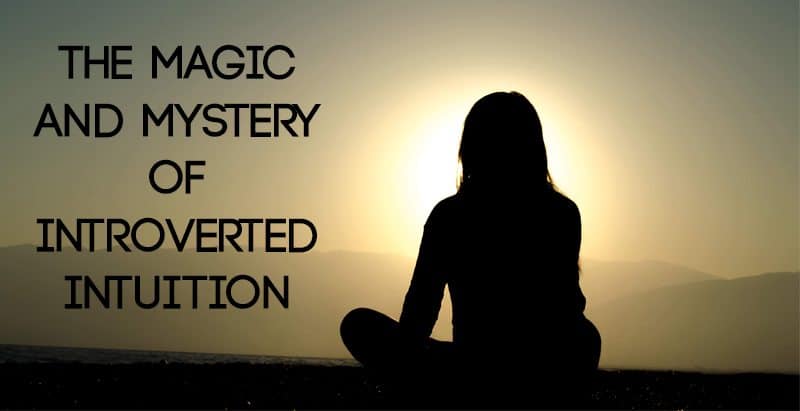
Foresight
Pattern-recognition
“Psychic powers”
Regardless of how it’s described, Introverted Intuition (or “Ni” as type geeks like me call it) can be both a blessing and a curse to live with. Often I’d love to sink into its depths and soak in all the pictures and patterns it gives me; other times my predictions are scary and unsettling. When I have foreboding premonitions I feel like I must do anything to change the scenery. I try to focus on the here and now, pushing out any negative ideas.
But most of the time I love introverted intuition; I fall in love with what could be, and what I’ve seen leading up to a moment in time that I’ve yet to encounter. Anyone with Ni as their dominant function is going to enjoy using it, but it can also get messy sometimes.
Not sure what your personality type is? Take our new personality questionnaire here. Or you can take the official MBTI® here.
Table of contents
Estimated reading time: 9 minutes
How Introverted Intuition Works
Introverted intuition is a perceiving function that sorts through conscious and unconscious data giving the user a “vision” or symbol that holds great meaning. Some typologists call Ni “perspective-shifting” and an ability to see things from many different angles to find their underlying meaning and essence.
Isabel Briggs-Myers said the greatest gifts of Ni are the “flashes of inspiration, the insight into relationships, the imagination, the originality, the access to resources of the unconscious, the ingenuity, and the visions of what could be.”
Carl Jung said that Ni is “directed toward the inner object.”
But what is the inner object?
What Jung believed was that the inner object meant the areas of the unconscious. He believed that Ni-users didn’t just consider raw, outer material, but instead preferred to look at “subjective images of things which, though not to be met within the outside world, constitute the contents of the unconscious, and of the collective unconscious in particular.”
What does this mean though? What is the unconscious or collective unconscious?
According to Jung, the psyche is made up of three separate but interacting systems. These three systems include the ego, the unconscious, and the collective unconscious.
The ego is the conscious mind. Thoughts, memories, and emotions that one is aware of are found in the ego. This is where we get our feelings of identity.
The second system of the psyche that Jung defined was the unconscious. The unconscious contains temporarily forgotten personal information, as well as abstract symbols and memories of which one may not even be aware. When we dream we often access the unconscious. In fact, many Ni-users report having especially vivid and influential dreams.
The collective unconscious contains universal primordial images and ideas. Archetypes and symbols like the tree of life, the wise old man, or the great mother live here. Carl Jung believed that the collective unconscious had great influence over people and worked to add meaning and depth to life’s experiences. He found that these archetypal images were prevalent across various cultures and throughout various times in history, and so believed that they had some unconscious power in all civilizations.
INFJs are especially attached to the collective unconscious, and often interpret life through a series of symbols and images that can be traced back in time. When they explain themselves, they often use pictures to describe something rather than a literal account of events.
As an example from my own life, instead of pondering my feelings (“I feel sad, bored, trapped, angry, cheated”) I might simply imagine myself in a bird cage tossed and turned on a stormy sea as the key to my escape sinks to the bottom of the ocean. This picture fills my mind and that feels like my reality more than actual words.
As another example, when an INJ is wasting their time they might not think, “dang it, I’m wasting my time!” They might instead imagine our bodies aging and deteriorating, the earth spinning rapidly, or other symbols that mean something to them about the passage of time. As you can see, we tend to think in non-linear pictures and see events and situations as symbolic or pre-emptive signs of things to come.
There are a lot of articles out there that will define introverted intuition as an ability to plan, but many types can plan! What makes Ni unique is that it it is focused on seeing or envisioning symbols and images from the unconscious that mean something for the future.
Introverted intuition sees the background material of what happens in daily life and is more concerned with this background material or hidden meaning than it is with what shows up on the surface. Jung said “For intuition, therefore, unconscious images acquire the dignity of things.”
How does Introverted Intuition Play Out in Daily Life?
People with introverted intuition often have gut feelings that are uncannily accurate. They are excellent at spotting trends or patterns to form a prediction of what may be. They often don’t know how they got these predictions or why, but one neuroscience expert named Dario Nardi has an idea of how it all works…
“The Ni types often show a whole-brain, zen-like pattern. This pattern occurs when all regions of the neocortex are in synch and dominated by brain waves that are medium-low frequency and very high-amplitude….What is this zen state like? When presented with a problem, the Ni types seek to harness all neocortex regions in order to “realize” an answer. Imagine a troop of blind men trying to identify a secret object by touch. One man feels a trunk and says, “tree”; another detects four legs and says “table”; a third feels tusks and says “boar”. Like the blind men, each region offers a different perspective, and a zen-like synchronous state allows the person to reconcile various perspectives to arrive at a best-fit answer (an elephant).”
Nardi goes on to say that Ni types easily show a zen state when tasked to envision the future. This is where INTJs and INFJs truly shine. Their minds synthesize a plethora of information obtained via their inferior sensing function. As this information is synthesized and sorted, they will suddenly get an image or a “hunch” about what will happen or something’s underlying meaning. These predictions can be unsettling to others, and even the Ni user themselves.
For me personally, Ni reveals insights and revelations about people that seem to come out of the blue. I remember knowing that a man was a child molester long before there was any evidence of him being one. I recall knowing my parents were in danger one night and then finding out the next day that they had been in a car accident.
Kind of weird, I admit.
Like anyone, I’ll mess up sometimes and misread something or someone. However, being Ni dominant means I think in these symbols and I’ve learned to trust these gut intuitions and hunches about life and what’s happening or could happen. INJs are always trying to think of the big picture and put together a future plan or idea composed of all the bits of sensory information we’re receiving. We support our Ni with either Extraverted Feeling (for INFJs) or Extraverted Thinking (for INTJs). These auxiliary functions help us to actually do something with our visions instead of just leaving them there. For the INFJ, feeling motivates them to connect with people or inspire them with our ideas. For the INTJ, thinking helps them to map out strategies or create innovative systems. The auxiliary function is there to help INJs bring their inner visions into the world in a tangible, real way.
The Dark Side of Introverted Intuition
All this picking up clues and connecting dots can reveal startling or upsetting future outcomes. I’ve guessed at things happening; relationships ending in very specific ways for people I know, ambitions and dreams failing, someone being in a dangerous situation or hurt. While all types can occasionally do this, Ni dominant types are often are plagued by this problem the most.
Our struggles come when we try to explain our insights and they are misunderstood because we rely so much on abstract material. You see, we don’t always know why or how we got the particular idea we currently have. Dredging up all the sensing data from our inferior function (Extraverted Sensation) can seem overwhelming. We know the facts are there, but organizing all the data and explaining it in concrete terms can feel like an exercise in futility. Nevertheless we are usually quite sure of our premonitions or predictions. Thankfully, with growth and maturity we usually get better and more proficient at explaining ourselves to people who are unlike us in their mental hardware.
The Magic of Introverted Intuition
Each personality type has unique talents that makes them shine. For some types, organizing life efficiently and streamlining tasks comes easily. For other types emotional awareness and leadership of groups comes easily.
If you’re an INJ, the magic of Ni appears when someone explains to you an idea they’ve had, and you know it will work because you can see what’s led to this point, and where things will likely go. It provides a sense of joy when you can be enthusiastic about someone’s dream, maybe even your own, because you have a visionary insight into how that dream will become a reality.
Introverted Intuition helps you to see past this moment in time to avenues of possibility into the future that others are blind to. Ni is powerful when it works with other functions like thinking, sensing, or feeling to concoct original plans or innovations. It helps you to see past what’s right in front of you and discover more than what’s on the surface. Yes, sometimes it can be misleading, but other times it feels like it’s a magical door that can unlock your true purpose, your biggest hope or dream, or an understanding of someone that nobody else has ever grasped.
What do you think?
How do you feel about introverted intuition? Have you had any experiences with it that you’d like to share? I’d love to talk to you and find out more in the comments!
Want to find out more about your intuition? Check out 10 Introverted Intuition Hacks for INFJs and INTJs
Find out more about your personality type in our eBooks, Discovering You: Unlocking the Power of Personality Type, The INFJ – Understanding the Mystic, The INFP – Understanding the Dreamer, and The INTJ – Understanding the Strategist. You can also connect with me via Facebook, Instagram, or Twitter!
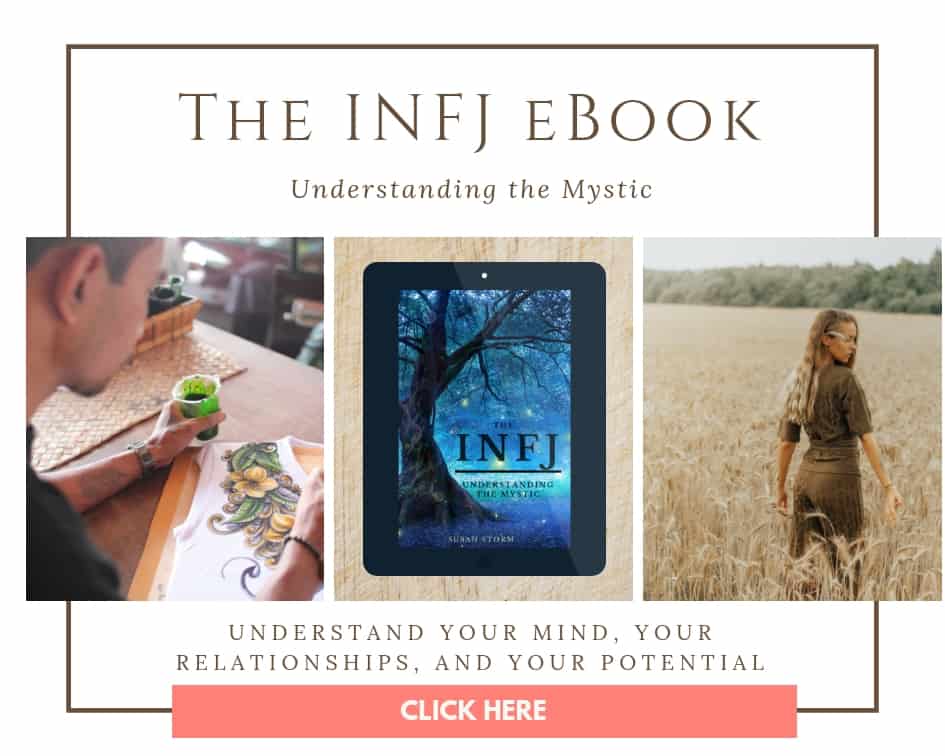
Want more articles like this?
INFJ vs INTJ: Which One Are You?
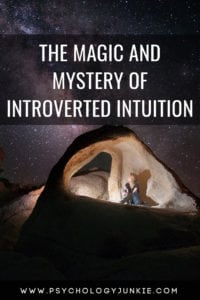
Subscribe to Our Newsletter

Want to discover more about personality type? Get the inside scoop with Susan Storm on all things typological, along with special subscriber freebies, and discounts on new eBooks and courses! Join our newsletter today!






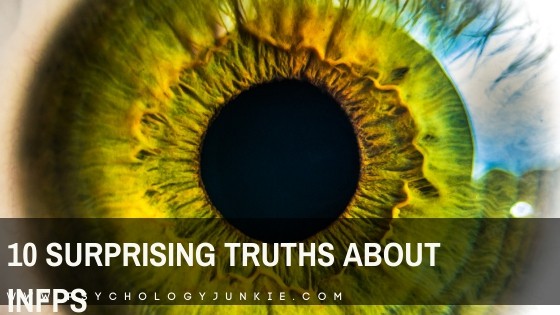




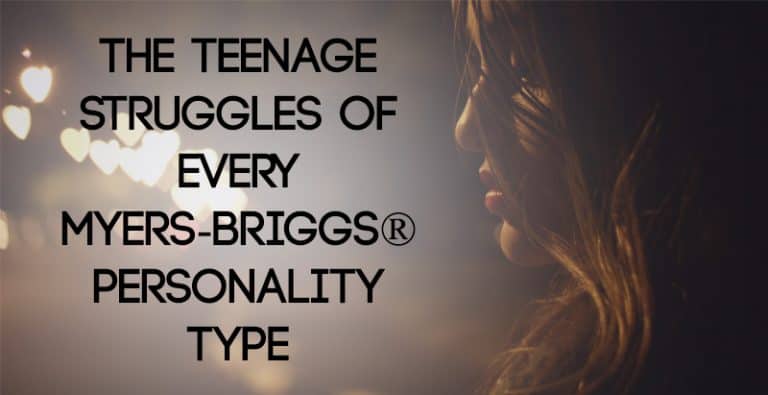
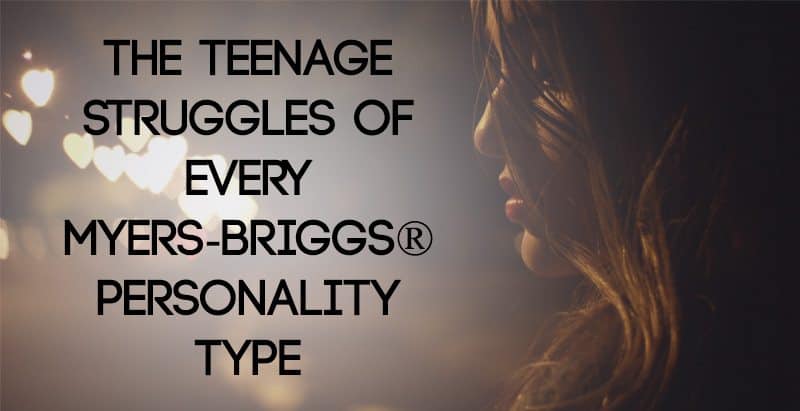
It’s amazing to me how my Ni is always ticking away behind my Te to inform me of “things I have no business knowing,” as they say. Some online friends have thought I was an INTJ because of it (and because they never saw how loud and outgoing I am IRL, lol).
The worst part of Ni was one time I had to watch someone’s life fall apart because of something I begged them repeatedly not to do because I KNEW what would happen, but they didn’t listen.
And lo and behold, it was even worse than I imagined.
On the “bright” side, at least I saw it coming and wasn’t totally blindsided, and that person learned a harsh lesson about cognitive functions, although I’d much rather they’d learned from a book or something.
So, all you INxJ supremacists out there, ENxJs can use “psychic”-seeming Ni, too, and Ne-users can learn to listen to it even if they don’t necessarily understand it. 😉
When I watch old movies, especially Jane Austin, I find that I wax poetic. Words easily come together in my brain. I write them down as quickly as possible, but they never sound as poetic on paper as they do in my brain. I’m a 65 yr. old female Divergent INTJ. Took me a lifetime to figure out why I’m so different in my thinking. I’m often misunderstood because I speak in a combination of views all at once. I can see all side of situations, which often is confusing even to myself. But everything must have a basis to my interpretation, and that is the final WORD OF GOD. Otherwise everything couldn’t have a true meaning that matters to mankind. I’m very creative and I see things in unassembled parts. Anything is possible and I plan out most days, but I’m also spontaneous. I’m an extreme organizer. Can anyone relate to any of this.
Yes!
Hi. I know this is an old article, but I’m going to ask anyway. I’m struggling to work out if I have Ni or not on my function stack. To be honest, neither Ni or Ne fully resonates with me, so I’d like to ask a couple of questions about how Ni works, in case I’ve just misunderstood how it’s been described. If some high Ni users (particularly the writer of this article) could please answer these questions, that would be helpful.
Question 1: Ni usually works subconsciously in order to solve problems. So, when someone uses Ni, do answers sudden come to them in a light bulb moment? Or, is it more like they are consciously thinking about the problem, then the answer comes while they’re deliberately thinking about it? Does it come out of the blue? If you could please give me an example then that would be helpful.
Question 2: The article says Ni is predictive. This is something which doesn’t resonate with me, although some aspects of Ni do. Is this ability to “Predict” things like you can see why a pattern you are witnessing exists? Is your mind just explaining why the pattern you are currently witnessing is happening? This seems like it’s telling you something about the present in my opinion, instead of predicting the future. So how is it predictive? Or, is it more like you can see why the pattern exists, so you can work out what the next step in the pattern will be, so that you are predicting the next step in the pattern?
If someone could help me to understand this then maybe I can see why Ni sort of resonates with me and sort of doesn’t.
Such excellent questions! You have an amazing mind, to voice all of that… so, to #1 – Yes and yes, for me. Sometimes I will get as much information as I can, then put the situation on the back burner, so to speak. I check in regularly until clarity is present. No decision needs to be made, as the clarity reveals itself wholly, so it’s obvious. Other times, particularly when working in counseling with someone else, time is of the essence. I move myself into a heightened state of awareness prior to a session, and the energy is amplified. I feel like I’m on a sort of leading edge, and understandings come in segments but dovetail together as we move forward. Self trust is essential to allow the big picture to form on the fly. Oftentimes as I am speaking what I am seeing I hear myself connecting things in a whole new way (for my mind). Wow, I think, that is really good! Lol. I attribute much of this to the alchemy created with the individual I am working with. And also to my own confidence in not needed to know what is going to happen, but trusting something good will! These are subtle energies we are looking at here, nuanced. Develop and trust your process.
.it’s more like a feeling of “ I know how it’s gonna play out, or I see all the twists& turns that got us here”.. you kinda see the stream ..where it came from,
where it’s headed, how fast is it moving, should it/can it be diverted. It was a super power and work but a disaster in the family
Enfj here. My life experiences have lead me to have pretty strong Ni, probably from spending most of my childhood alone. I have also had two long term partners who were intj, my daughter is an infj as well. Additionally, I studied comparative literature, comparative religion, and started reading Jung at 19. I am laughing because I was just journaling, and I wrote that I often say (mostly to myself ) “I know how this is going to play out,” and the comment above just said exactly this! Thank you for all your excellent articles. ( I am also a certified MBTI consultant).